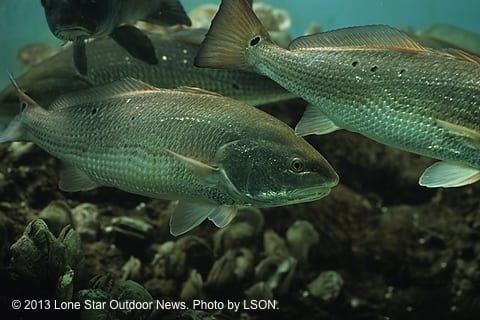The Texas A&M System Board of Regents has approved the creation of the Center for Sportfish Science and Conservation within the Harte Research Institute for Gulf of Mexico Studies at Texas A&M University-Corpus Christi.
“The Island University is excited to have the first center of its kind in the nation dedicated to advancing sportfish management, science, and conservation,” said Dr. Flavius Killebrew, president and CEO of Texas A&M-Corpus Christi. “The new Center for Sportfish Science and Conservation will position the University as a national and international leader in addressing issues related to sportfish.”
Recreational saltwater fishing in Texas generates more than $981 million dollars in retail sales each year with more than 750,000 saltwater anglers supporting an annual economic impact of $1.7 billion dollars.
“We will contribute the expertise and the leadership needed to help ensure that the state’s multi-billion dollar recreational fisheries continue to thrive for future generations,” said Dr. Larry McKinney, executive director of the HRI. “The Center for Sportfish Science and Conservation will provide a robust base of scientific knowledge to assure that the best decisions are made in managing fisheries and marine environments.”
Dr. Greg Stunz, Director of the CSSC and Endowed Chair for Fisheries and Ocean Health at the HRI, says that both inshore and offshore, we face many challenges in maintaining healthy sportfish populations. These threats include a changing environment that is seeing diminished freshwater inflows to estuaries; habitat loss due to coastal development; and increasing pressure from commercial fisheries.
“The Center will address the most critical issues and problems affecting sport fisheries today,” said Stunz. “Our team is ready to take on the challenges facing the recreational fishing industry along the Texas coast and the Gulf of Mexico.”
In November 2012, the Coastal Conservation Association-Texas pledged $500,000 to support the CSSC. CCA Texas is a leader in restoring the fisheries for spotted sea trout and red drum, advocating for freshwater inflows to Texas estuaries, habitat restoration and education.
In addition, the CSSC will provide hands-on research opportunities for Texas A&M-Corpus Christi graduate and undergraduate students. It will also be a hub for marine research for the Texas A&M University System and other scientists interested in marine fisheries investigations.
Texas A&M creates center for sportfish science
321
previous post


